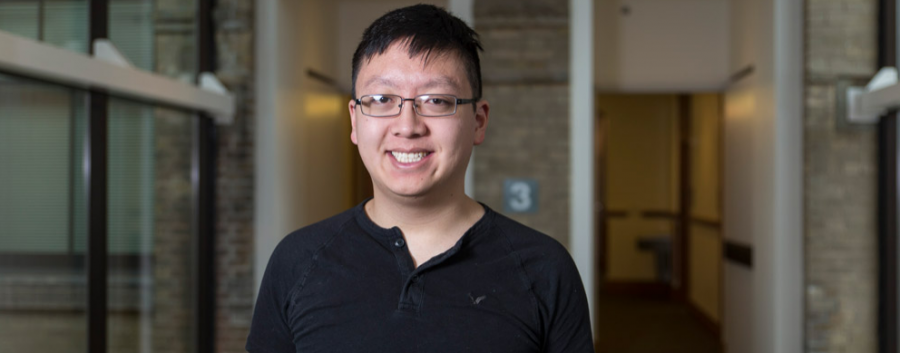For the second consecutive year, a student from the University of Utah was awarded the prestigious Churchill Scholarship. The Churchill Scholarship was created at the request of Winston Churchill, who felt it was important for the United States and the United Kingdom to work together in advancing science and technology.
“The scholarship was founded by Churchill to try and stimulate cultural exchange between the U.S. and the U.K.,” explained Michael Zhao, who was awarded the scholarship this year.
Zhao said the scholarship allows “students in the U.S. to study in Cambridge to do a Master’s [degree].”
The mathematics student is one of 15 scholars nationally to receive the Churchill Scholarship this year.
Last year, Mackenzie Simper became the first University of Utah student to accept the Churchill Scholarship, which is considered, “the most academically challenging of the U.K. scholarships.”
“The process of applying was intense, but it was very beneficial for me to think about what I want to do in the future… I am excited to go to Cambridge and be the U’s first Churchill scholar,” said Simper back in 2016, when she first accepted the award.
Simper is currently studying math at Cambridge.
When asked how studying might affect his future, Zhao said, “I’m doing pure math. The only real option to continue working in pure math is to become a professor and do research and teach.”
Zhao added: “Grad school was part of the plan. Cambridge adds another year, but it’s also kind of fun to be in the U.K. and stuff.”
During his year spent at Cambridge, Zhao will not only attend classes, but also work independently, conducting studies of his own.
“You can substitute a long essay for one of those classes,” said Zhao. “I’m pretty excited about that too.”
Specifically, he will study number theory, which has fascinated him since he took the class in 8th grade.
“What I really enjoyed about it was, you know, number theory classically deals with the integers, like 1, 2, 3, -1, -2, -3, 0 and before I took the class I thought these were kind of uninteresting,” Zhao recounted. “You use them to count, but there’s nothing to them. It turns out there is a lot more depth to the integers than I thought there would be.”
Since taking that class, Zhao has developed a passion for studying number theory, which he considers one of his hobbies, along with reading philosophy and playing video games. “Math kind of has to be a hobby,” he said, laughing.
“There’s so much more to study,” Zhao explained, when asked if there is still progress to be made in his area of study.
“You know, people used to study these things, but obviously trying to compute solutions to every single equation like this is futile,” he said.
Advanced mathematical techniques allow people to solve complex equations as well as overcome other feats, Zhao said.
“There’s still plenty to do.”


